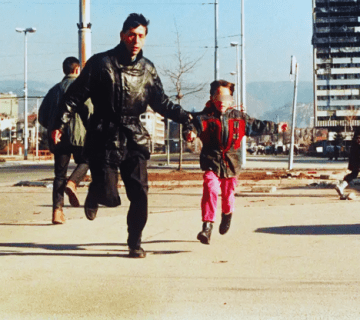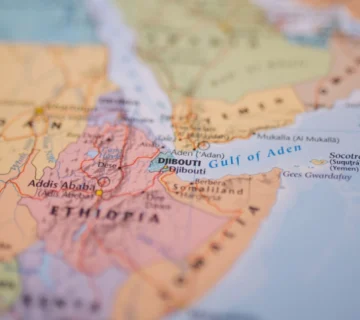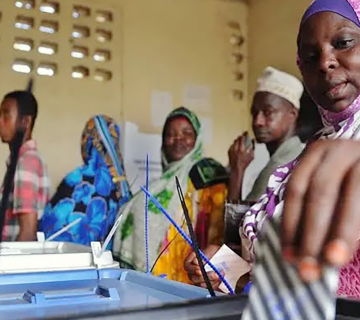President Mohammed Abdullahi Mohammed’s term constitutionally ended on, February 8, 2021, and Somalia’s presidential and parliamentary elections are yet to take place due to a number of factors including security concerns, disagreements between the Federal Government of Somalia (FGS) and Federal Member States (FMS) on the electoral process, and the composition of the members of National Independence Electoral Commission (NIEC). These concerns and tensions are hindering Somalia from having timely elections. FGS should work with FMS and the opposition, as well as international and regional partners to support NIEC in delivering peaceful elections for the stability of Somalia and the Horn of Africa.
Security Concerns
Al Shabab, which has promised to disrupt the upcoming elections, is among the key impediments to the actualization of successful elections. The militant group’s ‘pan-Islamic solidarity’ ideology of creating a caliphate is also opposed to the idea of democratic elections. The group has launched numerous attacks in different parts of Somalia. According to the Counter Terrorism Project, in the month of January alone, al Shabab carried out seven attacks in Somalia killing at least 59 people and leaving scores injured. On January 31, 2021, for example, al Shabab attacked the Afrik Hotel in Mogadishu where some clan leaders and other opposition leaders were holding a series of meetings on the upcoming elections, killing five people. The militia has also permeated the political, economic, and social fabric of Somalia, with the aim of influencing the government.
Center-Periphery Tensions
Power contestation and lack of consensus on how to proceed with the elections between the FGS and FMS are also two other sticking issues. According to FMS, the FGS has not been holding regular constitutionally-mandated meetings with FMSs; and it is only after pressure from some of the FMSs and international partners including the United Nations Assistance Mission in Somalia (UNSOM) that FGS were forced to convene some of these meetings. Recently, the FGS held a summit with some FMSs in Dhusamareeb (Galmudug state) to discuss the problematic issues around the elections in which the leaders failed to reach an agreement. FGS has accused some of the FMSs of being allied to some extra-national actors in the region, which interferes in Somalia’s internal affairs. Villa Somalia has particularly blamed Kenya for meddling and fueling the conflict in the Gedo region of Jubaland. This allegation was however ruled out by the Inter-Governmental Authority on Development (IGAD) fact-finding commission for the reconciliation of Kenya and Somalia in a report released on January 26, 2021. In response, Somalia dismissed the report terming it biased, and has demanded the withdrawal of the report by IGAD and apologies, further threatening to exit the bloc if these demands were not met. It is worth noting that the issue of Kenyan troops in Somalia is that they are under the umbrella group of the African Union Mission in Somalia (AMISOM) and not as individual national forces. Generally, the lack of trust and consensus between the center and periphery in Somalia has created tensions thereby creating political uncertainty.
Election Preparations
So far, NIEC has registered 108 political parties and 15 presidential candidates. The incumbent is seeking a second term. His main rivals are former presidents, Sheikh Sharif Ahmed (2009-2012) and Hassan Sheikh Mohamud (2012-2017); Hassan Ali Khaire, former Prime Minister (PM); Dahir Mohammed Gelle, former Member of Parliament (MP); and Abdirahman Abdishakur Warsame, leader of the Wadjir party and a former member of parliament. NIEC has however not announced the electoral timetable. There are also allegations that NIEC has been infiltrated by FGS loyalists thereby compromising the integrity of the institution. On January 28, 2020, Jubaland and Puntland leaders submitted names for their regional electoral representatives to the State Electoral Implementation Team (SEIT) to act as election officials and observers. The previous electoral models allowed a lot of vote-buying, corruption, excluded minorities, and women were also marginalized in the process. In this year’s election, (whose deadline has since passed), it will not be one person one vote but a hybrid, consisting of direct and indirect models to increase political participation. The number of delegates will be increased from 51 to 101, and 30 per cent of both houses of parliament will be reserved for women.
Addressing Challenges
Somalia is unable to provide sufficient security, and the national army still needs the support of regional peace stabilizing missions such as AMISOM to secure the country during the election period. Other important players such as the United States should restore its operations in Somalia in efforts to support Somalia’s security forces degrade the al Shabab group. Further, stakeholders in Somalia should find consensus on a comprehensive and inclusive political reform. Through a review process of the Somalia constitution, adjustments can be done in fundamental areas such as the distribution of power between the FGS and the FMS and a more inclusive governance structure. This can be done through assisted negotiation, and conflict resolution-oriented dialogue between Farmaajo and other political leaders. FGS should also invite other states in the region to act as election observers to ensure transparent elections. In the future, Somalia should focus on building stronger institutions, especially the judicial and electoral systems with appropriate checks and balances.
Asia M. Yusuf is a Researcher at the HORN Institute.
Photo: A soldier walks past Afrik hotel in Mogadishu after the attack by al Shabab in January, 2021 (Photo Credit: CNN)



